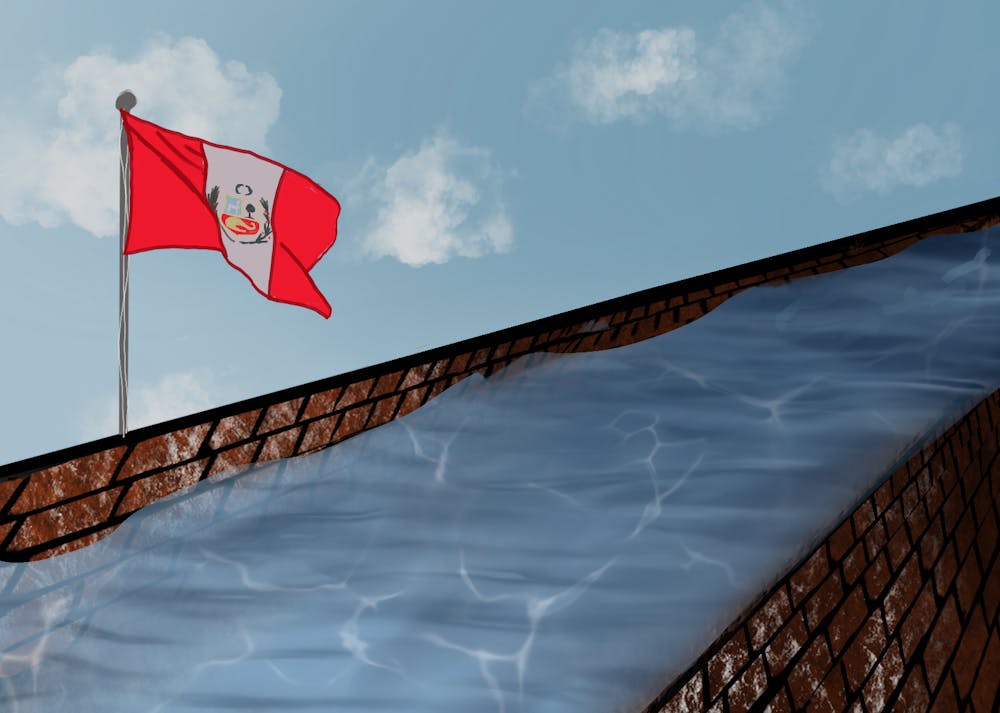A school project created by three ASU students in 2010 was the beginning of nonprofit 33 Buckets, an organization that focuses on addressing clean water scarcity. The organization has run projects in Peru, Bangladesh and the Dominican Republic by working with communities to create engineering-based solutions.
Since 2015, the organization has partnered with 15 communities to improve water access and promote sanitation in those areas. The nonprofit's work has ranged from creating and distributing household filters to school filtration systems to community-wide systems.
“Our mission is to empower communities by improving and enabling them to achieve long-term access to clean water,” executive director of the nonprofit and ASU alumnus Daniel Hoop said.
33 Buckets was started as an ASU Engineering Projects in Community Service project by ASU students Mark Huerta, who studied bioengineering and engineering education, Swaroon Sridhar, who studied bioengineering, and Paul Strong, who studied mechanical engineering.
EPICS is an entrepreneurship program that brings teams of students together to solve engineering-based problems for nonprofits, schools and charities.
“What we do is we find community partners, typically nonprofits, and we work on projects to give students hands-on experience to help them help the community and build their resume,” EPICS Director Jared Schoepf said.
The group fully formed and developed its filter by 2012, and by 2014 33 Buckets got the funding to travel to Bangladesh and implement the filters, Hoop said.
Afterward, a select group of students from the EPICS team decided to continue the work in Peru and the Dominican Republic. 33 Buckets became an official nonprofit organization in 2017, now concentrating its work on finding the best ways to provide clean drinking water to Peru.
Out of Peru's population of 32 million people, 16 million lack access to a reliable, safely managed source of water, according to water.org.
“Our students were designing a chlorine system and a chlorine monitoring system to make sure they're adding the correct amount of chlorine to disinfect the water,” Schoepf said of the Peru project.
ASU students have continued to work closely with 33 Buckets, many of them interning with the organization. These students, including Adam Westmoreland, a junior studying chemical engineering, get opportunities to do hands-on work.
In Peru, the team was tasked “to design a prototype for a chlorine disinfection water treatment system that could replace the system they were currently using there,” Westmoreland said.
He said it was important to build a prototype for this system because in the area the students were working in, the Cusco Region, the system in place did not disinfect the water on a regular basis, which could be dangerous for residents' well-being.
“We know that just going one or two days with dirty water in a community can have negative health effects that lasts possibly a lifetime. They can be life-threatening health effects,” Westmoreland said.
Hoop saw the impact the organization had on residents in Cusco and wants to see even more people gaining access to clean water. The organization also works to educate members of the community in water safety and sanitation, assisting them to become leaders in their own communities.
“We have been able to find individuals that really care about their communities and have the capacity to be great trainers, leaders, water managers, whatever it is,” Hoop said.
Hoop said educating individuals local to Cusco brings leaders forward to better the community and others in Peru or other parts of the world. Local training is “the most effective and beneficial model that (he’s) seen,” he said.
Hoop and the rest of the 33 Buckets team hope to continue this model and teach more people about clean drinking water. Although their current focus is in Peru, Hoop hopes they will expand their efforts all over.
“Potentially one day, we'll be working closer to home and figuring out how maybe we can provide value and create impact here in Arizona or closer by in Mexico,” said Hoop.
Edited by Sadie Buggle, Greta Forslund and Caera Learmonth.
Reach the reporter at mtvega1@asu.edu and follow @madivega18 on Twitter.
Like The State Press on Facebook and follow @statepress on Twitter.




